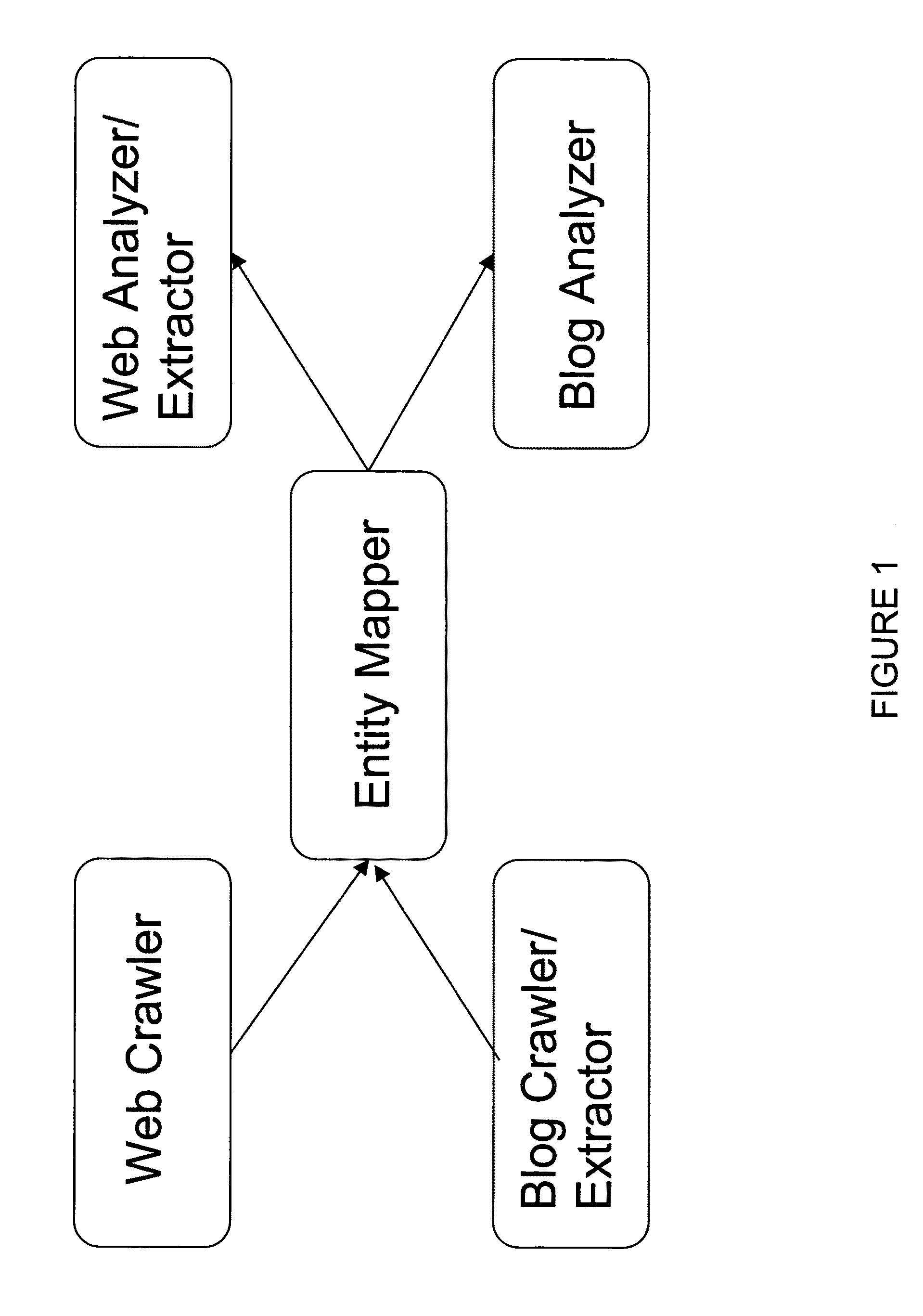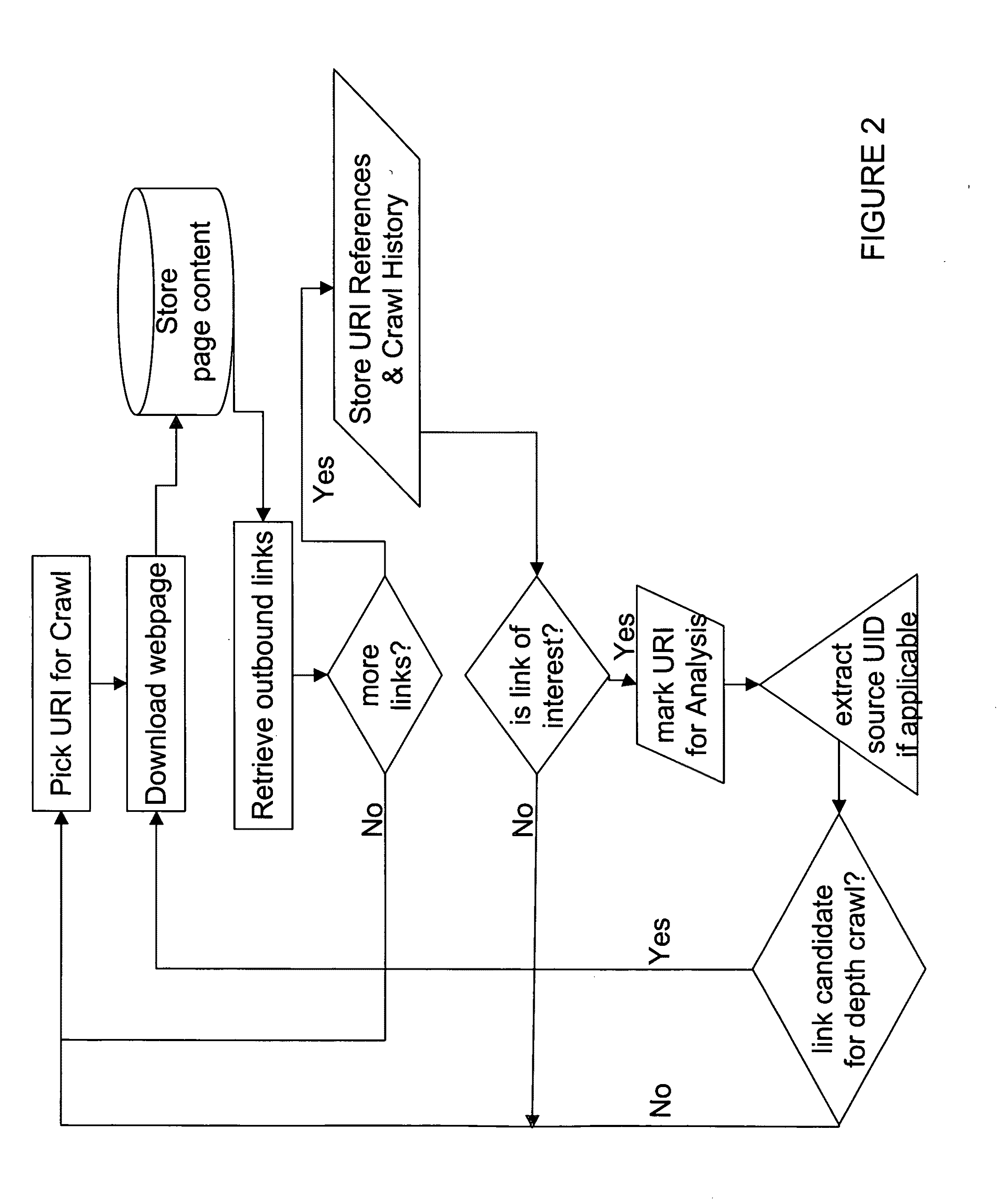However, as
the Internet expands to hundreds of millions of websites, and billions of individual web pages, the amount of content and number of pages that need to be discovered and analyzed, as well as regularly refreshed and reanalyzed, places a significant burden and high overhead, in terms of
financial costs and
data processing resources, on the search engines that process this information.
For example, when conducting a simple search for a local business, such as a restaurant, in Google or Yahoo, the top ranked responses will typically be from those sites that have some relevant content, but will also likely contain much irrelevant information, forcing the user to construct a long and complicated search expression.
In addition, because of the limitations inherent in keyword indices, there may be many local information sources containing timely and relevant content about the sought-after restaurant that should be considered by the searcher, but generally these sites will not be returned, regardless of the search query, since they are not easily indexed or integrated into the generalized
database constructed by a statistical-relevance based
search engine.
For example, as noted above, the best results for a local search query may not necessarily be keyword oriented, so traditional search engines, such as Google, which rely on meta tags and keywords and are not very capable of deep
crawling such content automatically, will not do a good job of extracting
relevant information and displaying it to the
consumer.
In addition, since websites are all constructed differently, statistical
search engine strategies do not readily provide a scalable solution around this limitation.
By way of example, if we consider the case of a traveler accessing Google through their
mobile phone to search for information about the best Italian restaurant in a particular city, their search may retrieve multiple pages of possibly relevant links, but there is no easy way for the
consumer to analyze the results to arrive at an answer of what is the ‘best Italian restaurant’ with a high
degree of confidence.
In addition, an authority of what is ‘best’ in one area may not necessarily be an authority another, which is especially true in the case of local businesses, so a search strategy that works well for Italian restaurants in San Francisco may not work well for Italian restaurants in Chicago or London or Milan.
However the results returned by these local business searches are generally limited to data “claimed” by the business owner, which may well be biased, or provided by a third-party content provider through some form of structured API integration with the
search engine, such as the GoogleBase API.
As a result, each of these search scenarios limits the information available to the searcher to only that which has been provided by an interested
third party, and therefore also limits its utility.
Other search engines have attempted to permit the association of a website with a known business, but these systems do not provide a mechanism to capture information from multiple sources, both structured and unstructured, about a known local business and then extract the captured information and associate, or link the extracted information with the local business.
However, Nye does not provide a
consumer or business with the ability to search for, capture, extract and confidently associate information about a specific local restaurant, and associate only the relevant results with that restaurant from, across multiple sites, official, commercial and enthusiast, both structured and unstructured.
Returning to the discussion of searching for relevant review information in a mobile application while traveling, while its possible for a consumer to manually search each of the local review sites they are aware of to try and assemble a ‘global’ opinion about a particular restaurant, or cuisine, in a particular city, this process can be
time consuming and, if a searcher is unaware of a particular site or blog, due to their unfamiliarity with the area, they may miss searching it completely.
In addition, when a consumer is traveling and conducting a local business search through their
mobile device, having to visit multiple sites to gather information is unacceptable.
However, for consumer searches where opinion and review data is often as, or more, important than raw pricing information, the
brute force method of aggregating information employed by kayak.com, for example, will not work.
 Login to View More
Login to View More  Login to View More
Login to View More 


